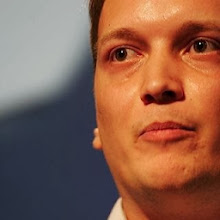What happens after?
"Dictatorships don’t always die when the dictator leaves office." wrote Mohamed Nasheed today in the New York Times. He learned it the hard way, he was toppled yesterday, four years after he became president of the Maldives in the historic 2008 election which ended the thirty year long rule of Maumoon Abdul Gayoom. In the op-ed titled The Dregs of Dictatorship, President Nasheed warns that "... long after the revolutions, powerful networks of regime loyalists can remain behind and can attempt to strangle their nascent democracies."
We will see what happens to President Nasheed (and what happens to
But despite all this, democracy is still the only game in town. 2012 is the election year and Serbians will decide who will enter parliament and form a new government for the fifth time since Milosevic was brought down, and for the first time the government had a full term (critics say this is their only success) which is a sign of political stability. There are no major anti-systemic political parties or organizations. On the contrary, we can say that there is a consensus among them about major issues like the political or economic system, or direction of country's foreign policy (critics would say they are all the same).
So what's the trick? I claim it is because of the bottom-up nature of transition, broad based movement which forged itself in the decade long struggle and transformed into a vibrant civil society. This is what prevented backsliding to dictatorship in the case of Serbia. In other words, if citizens believe democracy is worth saving ( democracy as a goal of their fight against dictatorship which preceded it) and have means to save it (have skills and resources to organize) they will prevent the backsliding to a dictatorship.
The fate of democracy must not be confused with the fate of the ruling government. Citizens will support the ruling government faced with a coup d'état, but then vote it out of office few months later, as part of the democratic process. This is what happened in 2003 to the government of Zoran Zivkovic: after the assassination of Prime Minister Zoran Djindjic by the rogue elements of the secret police, the government, now headed by Zoran Zivkovic, declared martial law and restricted civil liberties in an attempt to prevent the coup and arrest elements of the security forces who were part of the conspiracy. For this they got huge support from the civil society and population in general. But soon after the threat was removed, the assassins were put behind bars and the government called for elections later that year and lost. Now that democracy was defended by the government, people could use it to vote that same government out of office.
So as long as citizens believe that democracy is worth saving, and as long as they have skills and resources to organize, if they are ready and willing, the backsliding to dictatorship may be prevented. Both this dedication and know-how should not be taken for granted, as they fade over time, but the hope is that institutions will be strengthened and will make the new order more durable.


2 Comments:
Hi, I'm writing a research paper on Otpor for a sociology class. I came across an intriguing opinion by Ivana Franovic about the aftermath of Milosevic's overthrow. She thought that by attacking the man and not his policies, the ethnonationalist element in Serbian politics was preserved. She also thought that Kostunica did not adequately reform Serbian laws, and preserved relics of Milosevic's regime.
I was wondering if you had seen similar things, or if any progress has been made on these fronts. Thank you!
-Julia
Julia,
As you can see, the test that I mention in the last paragraph was succesfully passed - we had elections and the elementa of the old regime came back to power, but on a different platform, the one that promised the continuation of the policy established after the fall of Milosevic. Today, one year later, everything seems to support the opposite of what Ivana Franovic claimed, not just that the nationalist element is marginalized, but even people like Dacic and Vucic (members of the old regime) signed something like the Brussels Agreement with Kosovo.
Post a Comment
<< Home